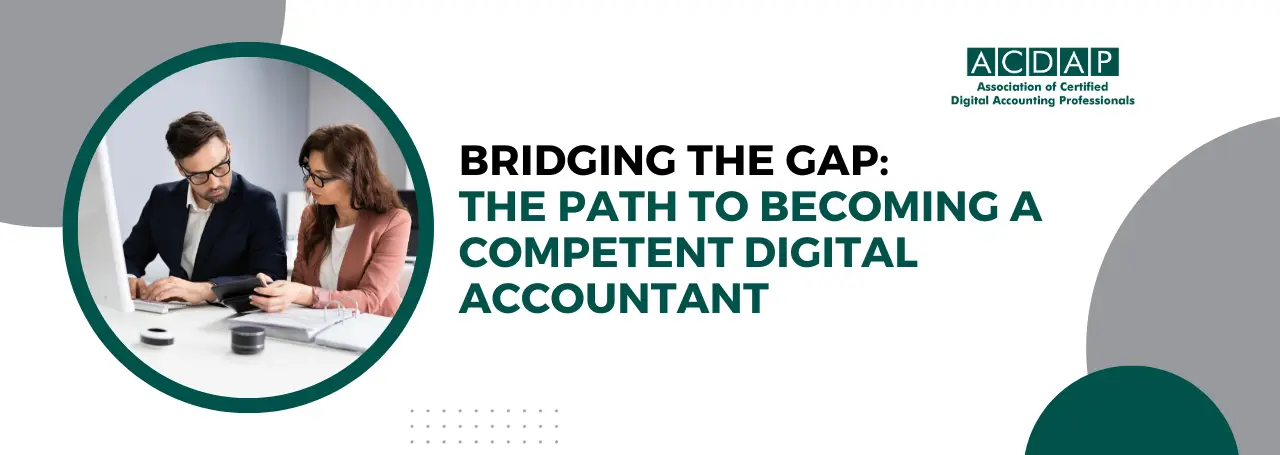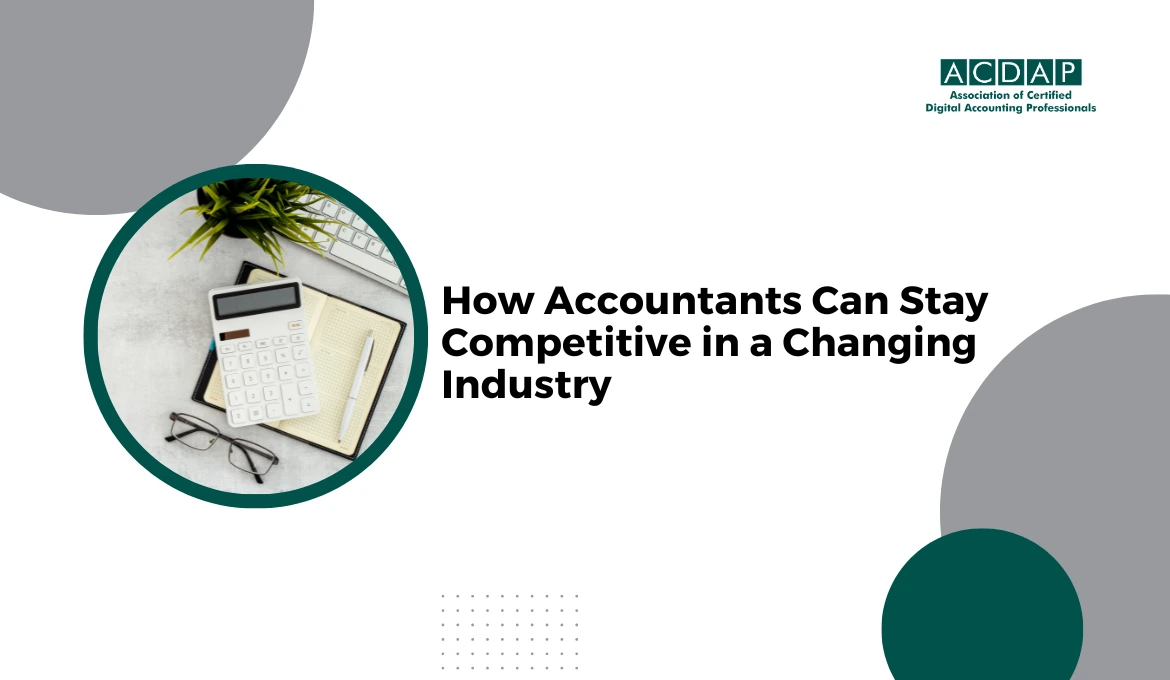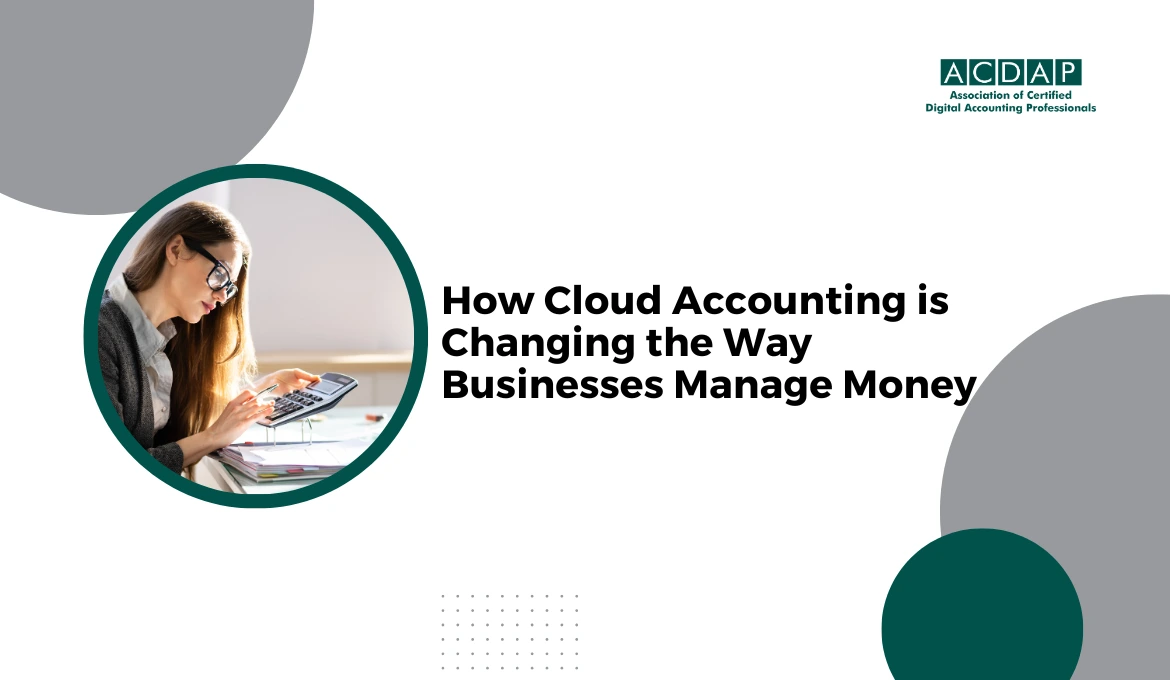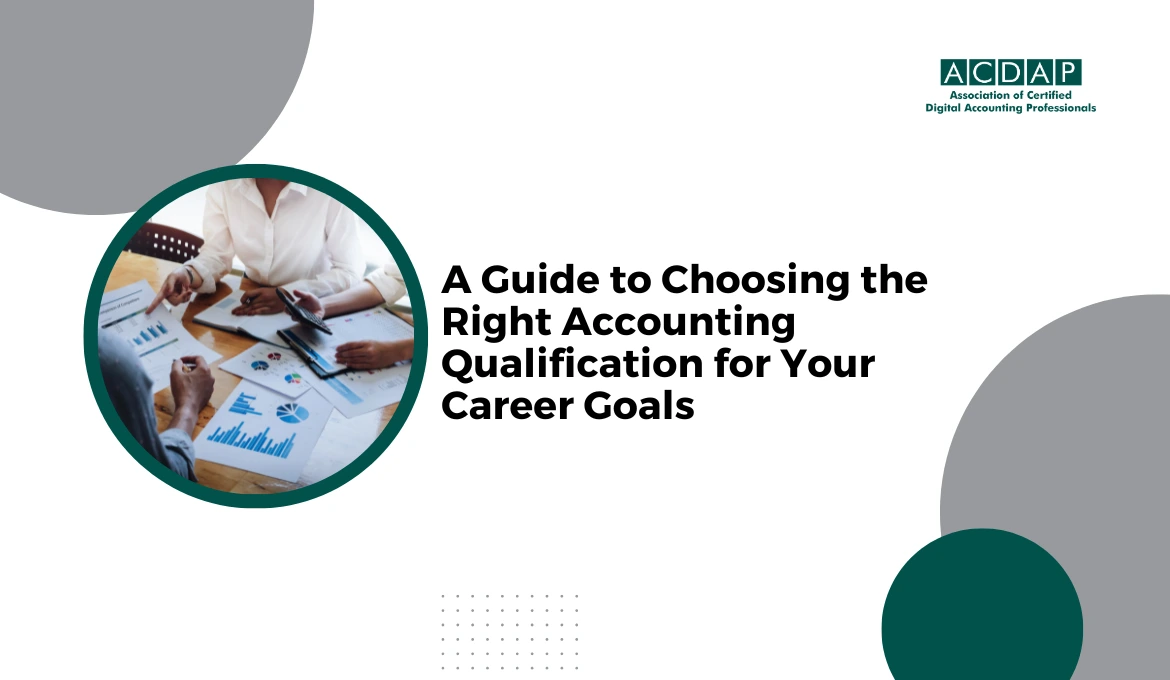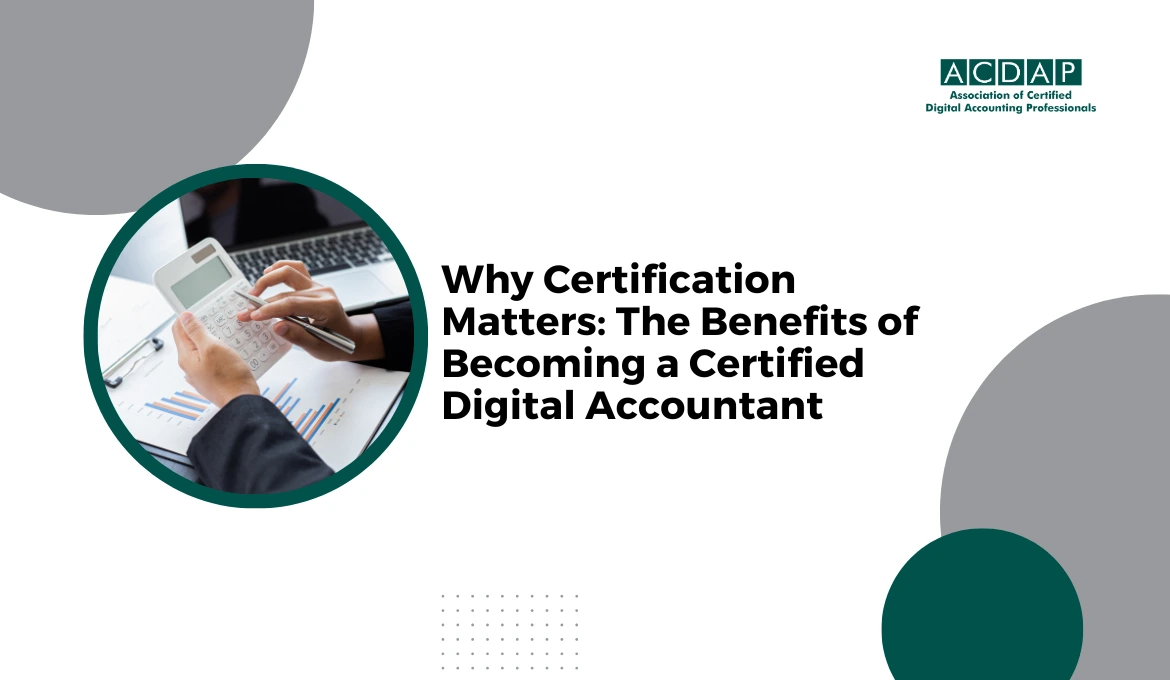In this dynamic finance and accounting landscape, the role of an accountant has evolved significantly with the advent of digital technologies. The transition from traditional to digital practices is not just a trend but necessary for accountants aiming to stay relevant and competent in the modern business world.
This article will explain the key steps and skills required to become a qualified digital accountant.
Embracing the Digital Era
The first step in becoming a competent digital accountant is to understand the profound impact of digital transformation on the accounting profession. Digital technologies, including cloud computing, automation, and data analytics, have reshaped how financial information is processed, analysed, and presented.
The Digital Accountant's Toolkit
To bridge the gap, familiarise yourself with the tools that define the digital accountant's toolkit. This includes accounting software such as QuickBooks, Xero, or Sage, which streamline traditional accounting tasks and enable real-time financial reporting.
Choosing the Right Software
The digital accountant's journey begins with selecting the right accounting software. Each platform has unique features and functionalities, so choosing one that is compatible with your specific needs and the requirements of the businesses you serve is essential.
Hands-On Training and Certification
Once you've chosen your preferred software, invest time in hands-on training. Many software providers offer certification programs, and obtaining these certifications enhances your proficiency and serves as a valuable credential for potential clients or employers.
The Rise of Data Analytics in Accounting
With the increasing availability of big data, the ability to analyse and derive meaningful insights from financial data is a skill that sets digital accountants apart. Understanding how to leverage data analytics tools enables you to provide valuable insights to clients or management, aiding in strategic decision-making.
Courses and Certifications in Data Analytics
Consider enrolling in courses or obtaining certifications in data analytics for accountants. Platforms like Coursera, LinkedIn Learning, or the Association of Chartered Certified Accountants (ACCA) offer courses tailored to enhance your analytical skills.
The Importance of Cybersecurity in Accounting
As digital accountants handle sensitive financial information, cybersecurity becomes a paramount concern. Understanding cybersecurity fundamentals is crucial to protect your clients and your practice from potential threats.
Cybersecurity Training and Best Practices
Ensure you stay abreast of current cybersecurity threats and best practices. Participate in cybersecurity training sessions and webinars, or pursue qualifications like the Certified Information Systems Security Professional (CISSP) to underscore your dedication to safeguarding financial data.
The Role of Automation in Accounting
Automation stands as a pivotal catalyst for efficiency in the digital accounting realm. Previously manual and time-intensive tasks can now be automated, liberating valuable time for engagement in more strategic activities.
Learning Robotic Process Automation (RPA) Tools
Explore tools and platforms that offer robotic process automation (RPA) capabilities. Understanding how to implement and utilise automation tools increases your efficiency and positions you as a forward-thinking accountant.
The Human Element in Digital Accounting
While technology plays a significant role, the human element remains crucial in accounting. Cultivating soft skills such as communication, problem-solving, and client management is essential for successful interactions in the digital realm.
Communication and Relationship Building
Digital accountants often work remotely, making effective communication paramount. Develop clear and concise communication skills and leverage video conferencing tools to maintain a personal connection with clients.
Adapting to Evolving Regulations
The accounting landscape is subject to constant regulatory changes. Staying updated with the latest accounting standards, tax regulations, and compliance requirements is essential for providing accurate and lawful financial services.
Continuous Professional Development (CPD) Programmes
Engage in continuous professional development programmes offered by accounting bodies or educational institutions. These programs often cover regulation updates and ensure that your knowledge remains current.
Final Thoughts
Becoming a skilled digital accountant involves mastering software, developing analytical skills, enhancing cybersecurity awareness, and embracing automation. Evolving alongside the digital age, a competent digital accountant becomes a strategic partner in business decisions.
This article positions accountants as industry leaders, offering insights beyond traditional bookkeeping. Embark on the journey to become a proficient digital accountant today and step into a dynamic and rewarding future in finance.
